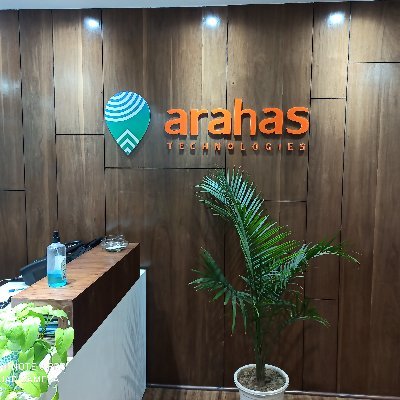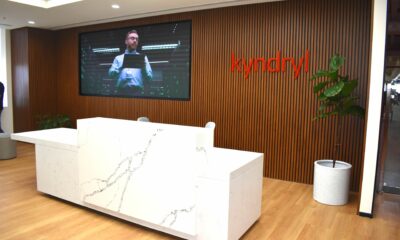News
AI for Enhanced Structural Health Monitoring: A Game Changer for Builders




By Saurabh Rai, CEO, Arahas
In the rapidly evolving construction industry, private builders continually seek innovative ways to enhance safety, efficiency, and sustainability. One of the most significant advancements in recent years has been the adoption of Artificial Intelligence (AI) in structural health monitoring (SHM). This technology not only promises to revolutionize the way buildings are maintained but also significantly reduces risks and costs, particularly in regions prone to seismic activity.
AI-driven Innovations in SHM
Structural health monitoring traditionally involves manual inspection and maintenance, which can be costly and time-consuming. However, with AI, private builders can now automate these processes, leading to more timely and accurate assessments. AI systems integrate sensors, data analytics, and machine learning algorithms to monitor a structure’s condition in real-time. These systems can detect anomalies, predict potential failures, and suggest preventive measures, thereby ensuring the longevity and safety of the infrastructure.
Benefits for Private Builders
Risk Reduction: AI-enabled SHM systems provide early warnings about potential structural failures, reducing the risk of catastrophic events. This proactive approach to maintenance helps mitigate hazards before they escalate into more serious problems.
Cost Efficiency: By predicting maintenance needs, AI helps in optimizing repair operations and resource allocation. This reduces unnecessary expenditures and extends the lifespan of materials, which is economically beneficial for builders. Additionally, the cost of traditional structural stability surveys, which are expensive and labor-intensive, is significantly reduced as AI provides continuous, real-time data analysis at a fraction of the cost.
Time-Saving: Automated monitoring eliminates the need for frequent physical inspections, saving time and allowing builders to focus on other critical aspects of construction management.
Data-Driven Decisions: The wealth of data generated by AI systems offers deep insights into the health of structures. Builders can use this data to make informed decisions regarding maintenance priorities and construction techniques.
Regulatory Compliance: With increasing regulations around building safety, AI technologies help ensure that structures comply with the latest standards and codes, avoiding legal and financial repercussions.
Leading the Way in Earthquake Solutions
Technologies has been at the forefront of integrating AI into SHM to specifically address the challenges posed by seismic activities. Their systems utilize advanced seismic sensors and AI algorithms to analyze structural responses to earthquakes in real-time. This capability allows for immediate assessment of damage and more importantly, provides predictive insights that guide the reinforcement of buildings to withstand future quakes.
Case Studies and Implementations
Several leading construction firms, including those collaborating with tech companies have begun integrating AI in their SHM processes. For example, a major development project in a seismically active area employed AI-driven system to monitor a complex of buildings. The system successfully predicted stress points during an earthquake, enabling timely reinforcements that prevented structural failures, saving significant repair costs and potentially lives.
Future Outlook
As AI technology advances, its integration into structural health monitoring is expected to become more sophisticated and widespread. Future developments might include more advanced predictive analytics, integration with other IoT devices, and autonomous repair systems, further transforming the landscape of building construction and maintenance.
In conclusion, AI technology is a powerful tool that provides private builders with an unprecedented ability to monitor, analyze, and maintain structural integrity. By adopting AI-driven SHM, builders can enhance safety, reduce costs, and deliver higher-quality, durable buildings. As we look to the future, the continued innovation in AI promises even greater advancements, marking a new era in construction technology.
*** Views expressed in this article are author’s personal and do not reflect the opinion ‘Realty & More’.
-



 News4 weeks ago
News4 weeks agoNoida’s High-Rise Societies Face Multiple Challenges Despite Rapid Urban Growth
-

 News4 weeks ago
News4 weeks agoIndia to become the fastest-growing silver economy, housing up to 17% of the world’s elderly population by 2050: CBRE Report
-



 News3 weeks ago
News3 weeks agoSKA Forays In Luxury Housing: Launches SKA Destiny One in Greater Noida, To Invest Rs 592 Crores
-



 News4 weeks ago
News4 weeks agoKyndryl opens new office in Bengaluru
-



 News4 weeks ago
News4 weeks agoHow Noida-Greater Noida’s Infrastructure is Transforming the Real Estate Landscape?
-



 News2 weeks ago
News2 weeks agoE-Infra, Hero Fincorp Partner To Launch Elegant Nivasa Luxury Apartments
-



 News3 weeks ago
News3 weeks agoNavigating Water Crisis: Innovations, Sustainability, and Developer Initiatives Leading the Way
-



 News4 weeks ago
News4 weeks agoPVR PXL Launched at Mall of Faridabad

















